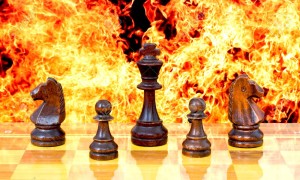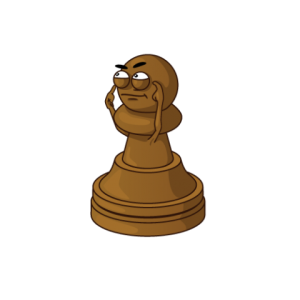Caught in the Crobsfire!
As some of you may know, I jump on a train every Wednesday morning to St Bartholomew’s House, a homeless shelter in East Perth, and provide residents with the opportunity to learn or play chess.
During this week’s session, just as I had gotten myself settled in front of the chessboard with a coffee and about to make my first move, a monotone voice cut through the silence of the room and said: “Evacuate, evacuate, please make your way to an exit! Evacuate, evacuate, please make your way to an exit”.
I looked to the player opposite me for direction but he appeared as unsure of what to do as I did. I realised then, I would have to rely on my own decision-making processes. Here’s some insight into how a chess lover’s brain works and how helpful it is in emergency.
In sync with the pause between each warning, the words “this is not a drill” began a loop in my brain. “Evacuate, evacuate, please make your way to an exit!” said the voice. “This is not a drill” said my brain. “Evacuate, evacuate, please make your way to an exit!” said the voice. “This is not a drill” adds my brain.
My brain then deduced: because the warning didn’t say it wasn’t a drill, then it WAS a drill, which means there’s no actual fire and therefore no real need to evacuate.
I relocated my pawn instead.
From my perspective, this incident just demonstrates how much I enjoy playing chess. My colleague Marsha on the other hand, suggests I should reconsider how highly I prioritise the game. As she humourously pointed out – when the threat of engulfing flames and incineration activates my fight or flight response, if my survival instinct isn’t to flee, then I should at least try to fight the fire … not my opponent on the chessboard!
Until next time,
Chris



Comments are closed